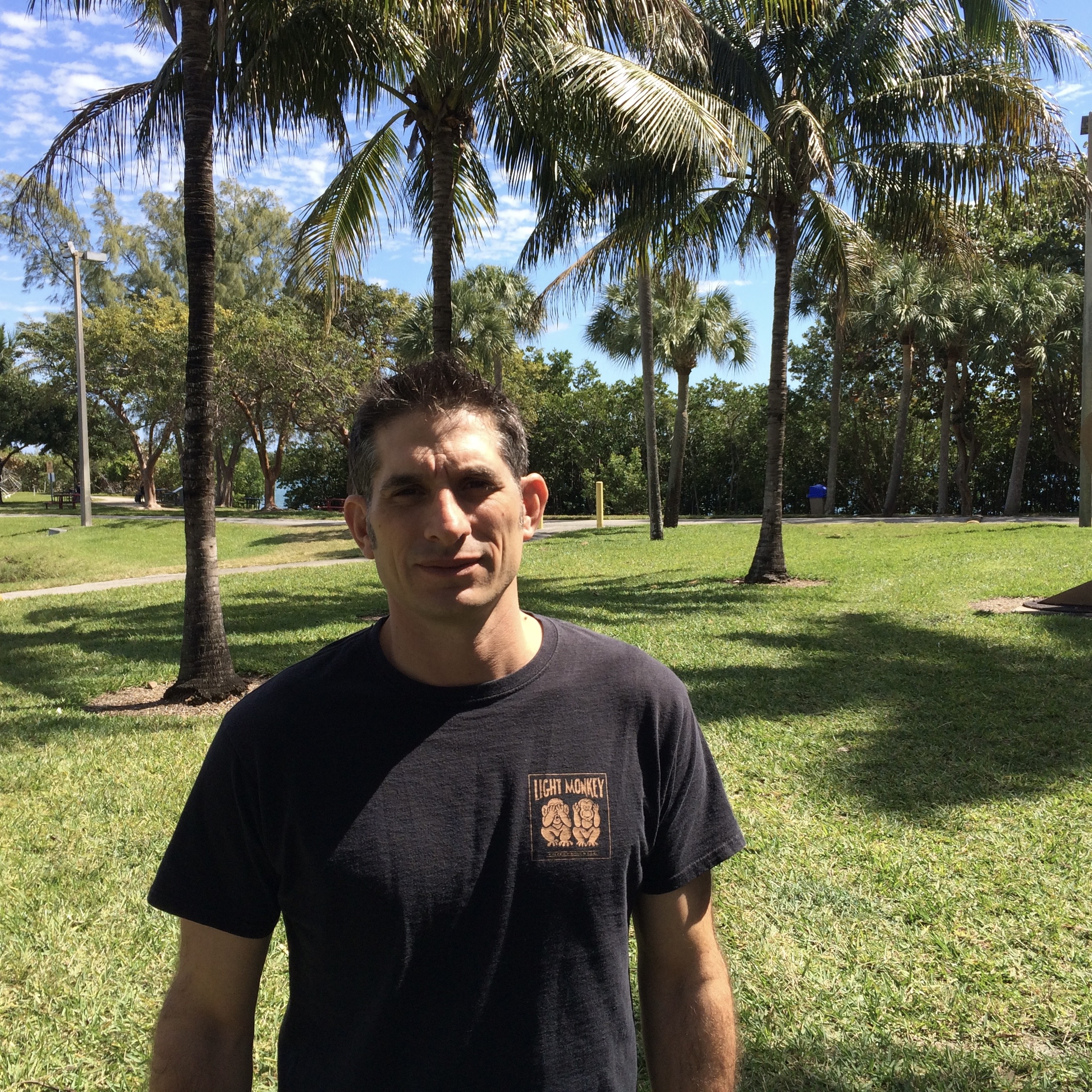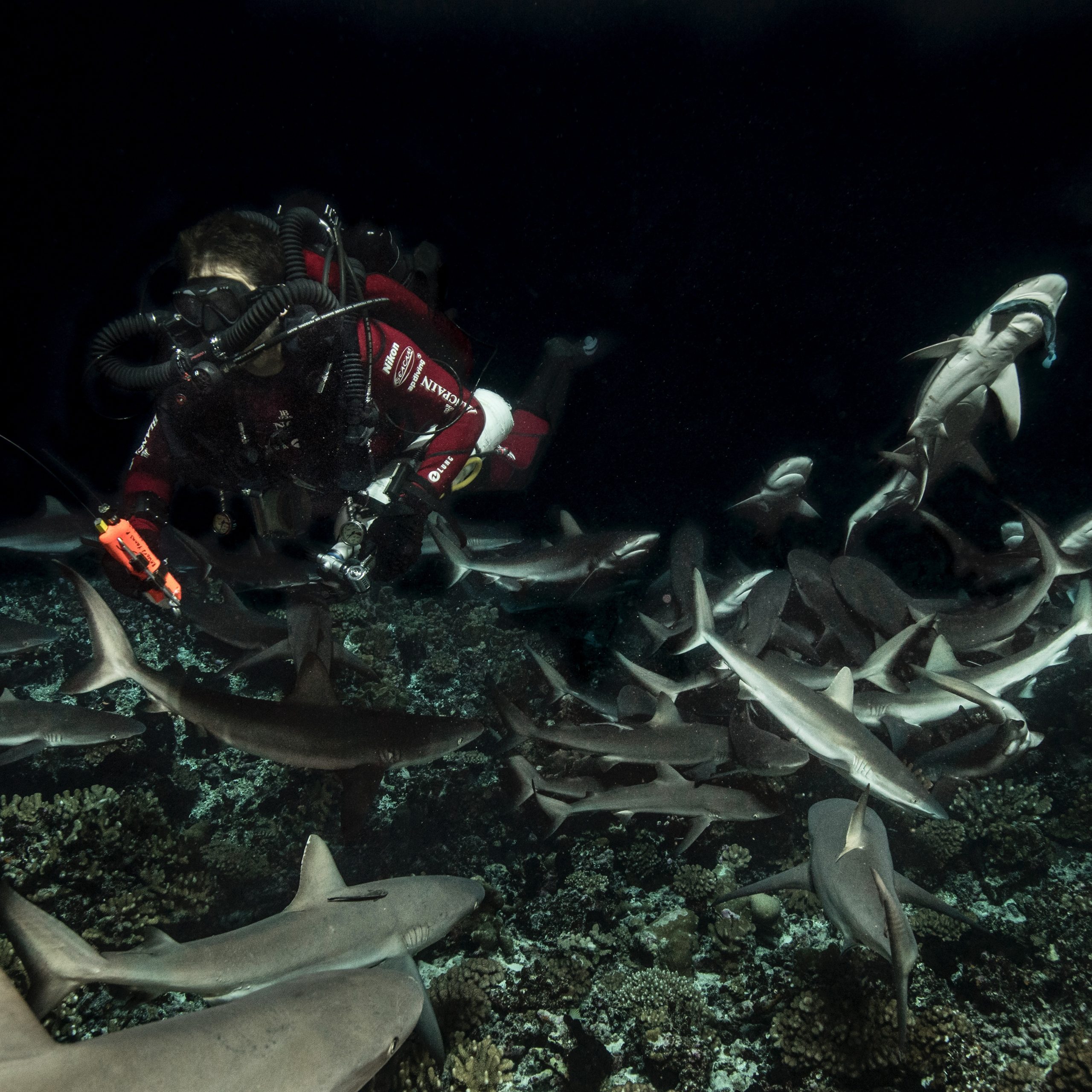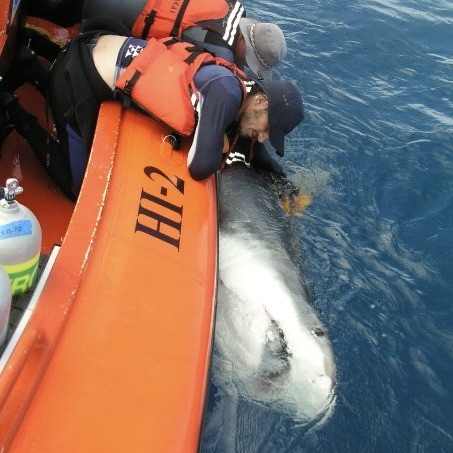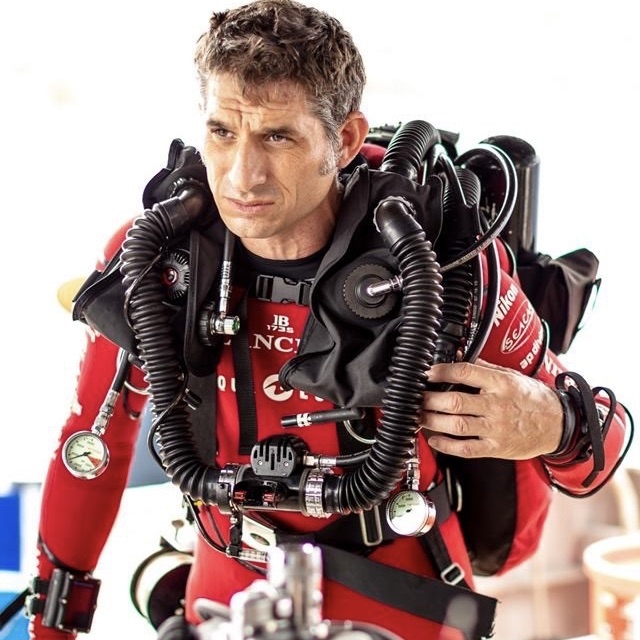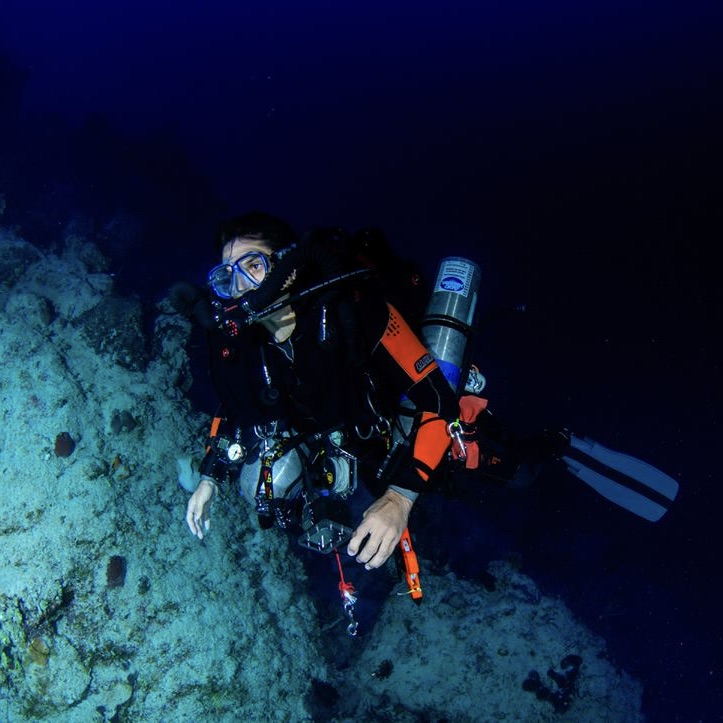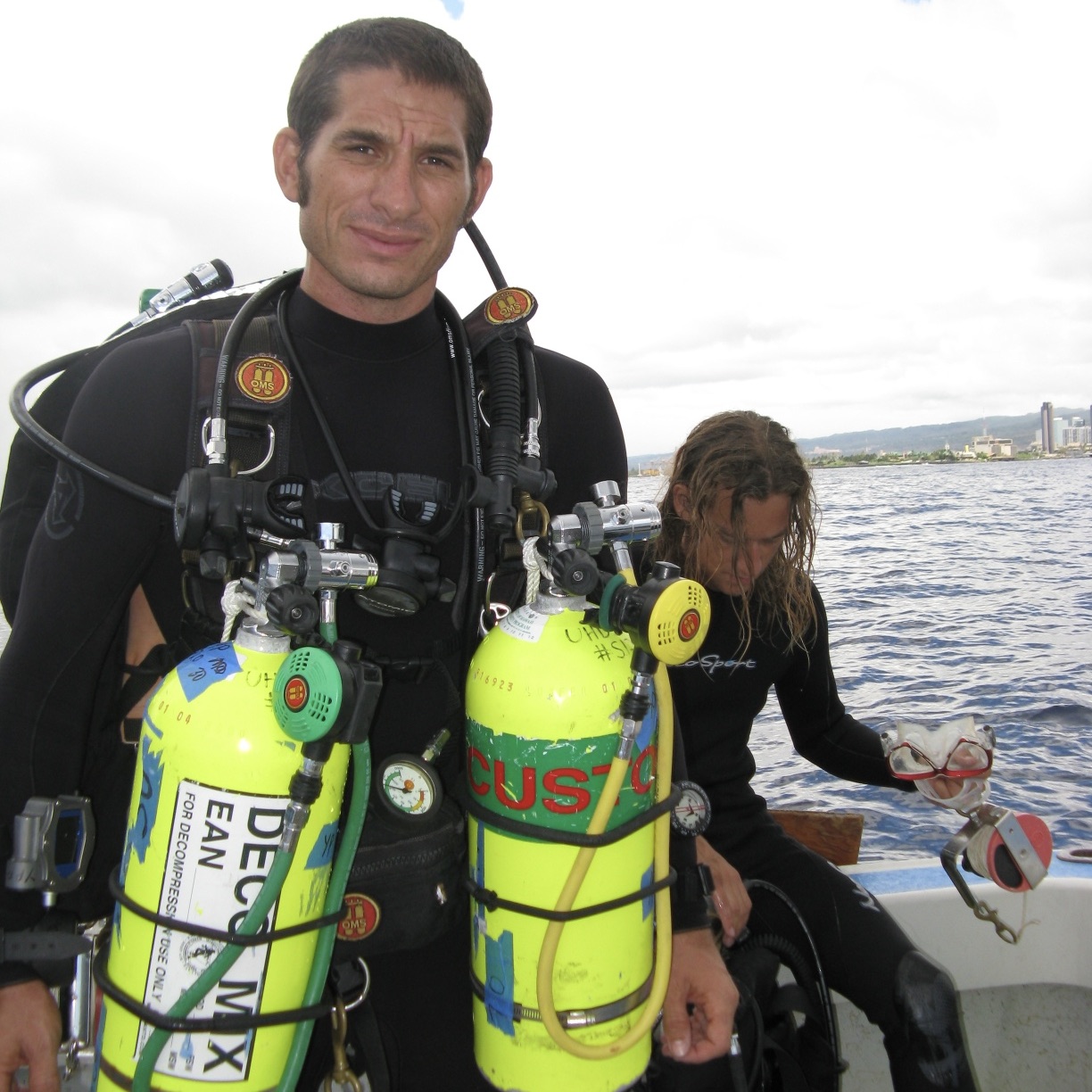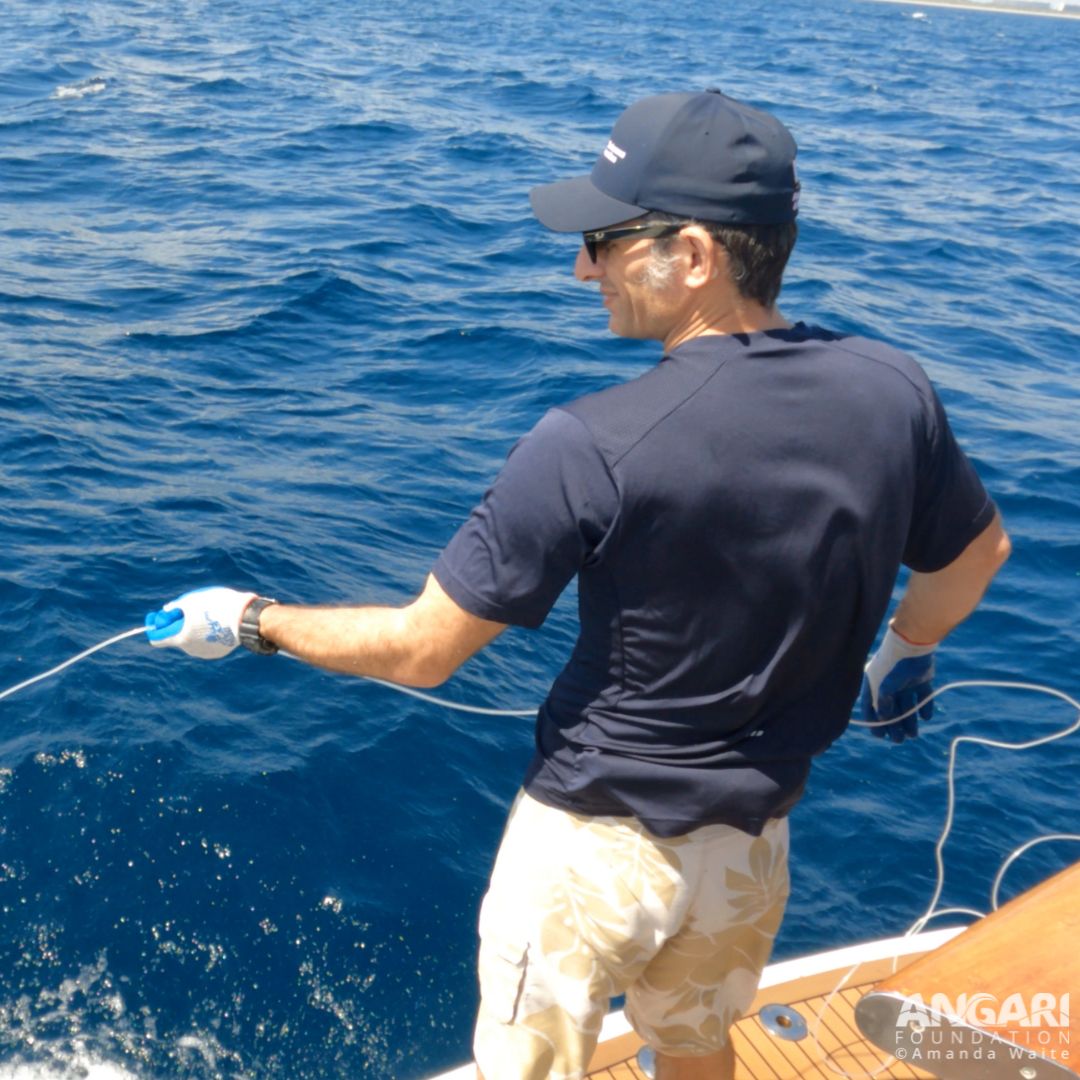



Meet Yannis Papastamatiou
I am an Associate Professor at FIU in the Department of Biological Sciences. With over 100 research publications, I am one of the world’s leading shark behavioral ecologists. My work has been featured on National Geographic and BBC. My use of new tag technologies on species ranging from pelagic oceanic whitetips to home ranging reef sharks has advanced the field of predator ecology and led to evidence-based marine protected area zoning.
2008 Ph.D. Zoology, University of Hawaii at Manoa
2003 M.S. Biology, California State University Long Beach
1998 B.S. Oceanography, University of Southampton, UK
Get To Know Yannis
I was born in London UK but spent my summers in Greece (I am half greek). I spent most of those summers snorkeling in the Mediterranean Sea, which is where my love for the ocean came from.
The oceanic whitetip shark. I admire its ability to survive in the open ocean, which is the oceanic equivalent of the desert. I also find them to be very cunning sharks to share the water with. Plus, they have a pretty unique and beautiful look to them.
My lab studies the behavioral and physiological ecology of sharks and other predators, and uses that to aid conservation efforts. For example, through our study of shark movements and habitat use, we are able to improve the design of marine protected areas. We are also very interested in understanding the ecological role sharks play.
I want to improve conservation measures for sharks and other predators; it’s not enough to just implement conservation measures. You have to make sure they are working and make them as efficient as possible, and that is something we strive to do.
Through work with my colleagues, we were able to show that the bonnethead shark is omnivorous and capable of digesting seagrass. We were also able to show that sharks could form social groups, which were in many ways similar to those we see in birds.
Sharks are upper level predators and may play an important ecological role by eating or scaring other smaller animals. However, it’s important we understand what that role is and how it varies by species. Not all shark species are the same, and some may have a very different ecological role than others (e.g. a white shark and a lantern shark are very different!).
I took the traditional route going straight to do my undergraduate after high school. I then went on to graduate school in the US (Masters in California and PhD in Hawaii) before doing postdoctoral research positions at University of Hawaii and then University of Florida. I briefly returned to the UK to take a position as a research fellow at the University of St Andrews before taking my current position as a professor at Florida International University.
I now spend a lot more time in the office performing administration tasks related to running a lab, and supervising my graduate students and their research. So time is spent reviewing and writing research papers, writing grants etc. I teach during the spring and fall semesters which also takes some time. I try to do one day a week of field research, and then spend a lot more time in the field during the summer. I also travel quite a bit internationally for research.
I look for students who are interested in broad questions in predator ecology and have inventive ideas. Having field experience is important but also having good analytical skills.
Doing more administration duties is always challenging! I enjoy going into the field, but now I really love to see data and results coming through. I particularly like to see the results my graduate students produce; getting data is challenging, and when we see the results, it’s the result of all their hard efforts. I actually love to write and publish scientific papers as I treat them like I am telling a (factual) story.
I try to train in Brazilian jiu-jitsu 3-4 times a week. The other sports I love (although I don’t get to do very often anymore) is snowboarding and cave diving. I also really love films and watch a lot of them in my spare time.
Yes, try not to get too focused on one specific animal. Even if you really want to work with sharks, make sure you always take a broad approach so that your research ideas will try to answer bigger ecological questions. Get a solid background in math, physics and writing! Try to get as much experience in coding as you can. These are all critical skills when it becomes time to getting into graduate school or just a career in science in general.
There will always be fascinating questions to answer in ecology. No matter how much we discover, more questions arise! So my drive is simply that I want to learn more about these animals and the ecosystems they live in.
Interview conducted in August 2023

